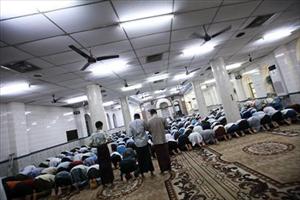(Ahlul Bayt News Agency) - An ultra-nationalist Buddhist creed is becoming more visible in Myanmar's commercial capital, Yangon, after monks from the apartheid-like movement helped stoke a wave of anti-Muslim violence in the central heartlands.
Many Muslims in the city say they are living in fear after dozens of members of their faith were killed in March by Buddhist mobs whipped up by monks from the "969" movement, a name that refers to attributes of the Buddha, his teachings and the monkhood.
Calm has been restored in Meikhtila and other volatile central areas after authorities imposed martial law and dispatched troops. A Reuters examination of the violence showed it was well-organized, abetted at times by police turning a blind eye.
But concerns linger among Muslims in Yangon, a city of about 4 million people undergoing rapid change during Myanmar's transition from 49 years of oppressive military rule that ended in March 2011.
Fears simmer after 13 boys died in a fire in an Islamic school on April 2. Officials blamed faulty electrical equipment but many Muslims believe the fire was started deliberately.
"At night-time nobody sleeps," said Mohamed Irshad on his way home from midday prayers at a mosque in Mingalar Taung Nyunt, a mostly Muslim neighborhood. "We have a guard, because some time they might come to attack."
Another worshipper, Ruhla Min, said the imam warned his congregation not to be provoked into violence, but to be patient and stay calm. "We prayed for peace," Ruhla Min said.
Some of the radical "969" monks have spoken in Yangon in recent weeks and recordings of their speeches are widely available.
Among the best selling speakers is Wirathu, who was jailed for inciting anti-Muslim riots in 2003 and released last year when the government freed hundreds of political prisoners.
Kyi Lwin, who sells DVDs in central Yangon, said the movement was not anti-Muslim but meant to "build a fence" around Buddhism and discourage Buddhists from interacting with Muslims who may try to convert them. The speeches convinced him not to buy goods from Muslims or eat at their restaurants, he said.
Ma Than Htwe said she had put a "969" sticker on her juice stall because some people thought she looked Muslim and that was losing her business.
Muslims account for 5 percent of Myanmar's 60 million people but have a much greater representation than their numbers would suggest among the wealthier merchant class, feeding resentment among some of those who remain impoverished despite the political and economic transformation under way.
"If you talk to people about their economic life, it hasn't really changed. They are still struggling to survive," said Aye Chan Naing, executive director of Democratic Voice of Burma, a media group. "Monks openly preach about taking businesses back into Buddhist hands. That appeals to a lot of people."
A Muslim, he worries about the spread of prejudice and the failure of the government to educate people about the danger. But he also warns against tarring all monks with the same brush.
"There were lots of Buddhist monks not condoning this violence, but preaching peace and reconciliation. Even in Meikhtila, there were quite a lot of Buddhist monks and locals helping the Muslims," he said.
Ye Htut, a presidential spokesman and deputy minister of information, noted that Myanmar has more than 500,000 monks.
"Only the handful had some extremist idea. The majority of Myanmar people and monks are against these actions," he said in an email to Reuters. "There are many cases in which monks and the community save the lives of Muslims."
End item/ 149

